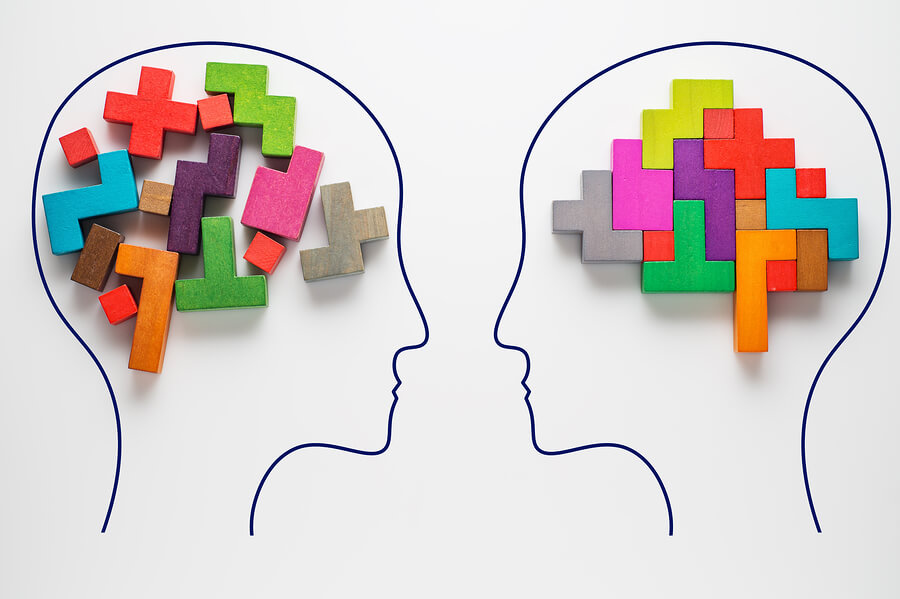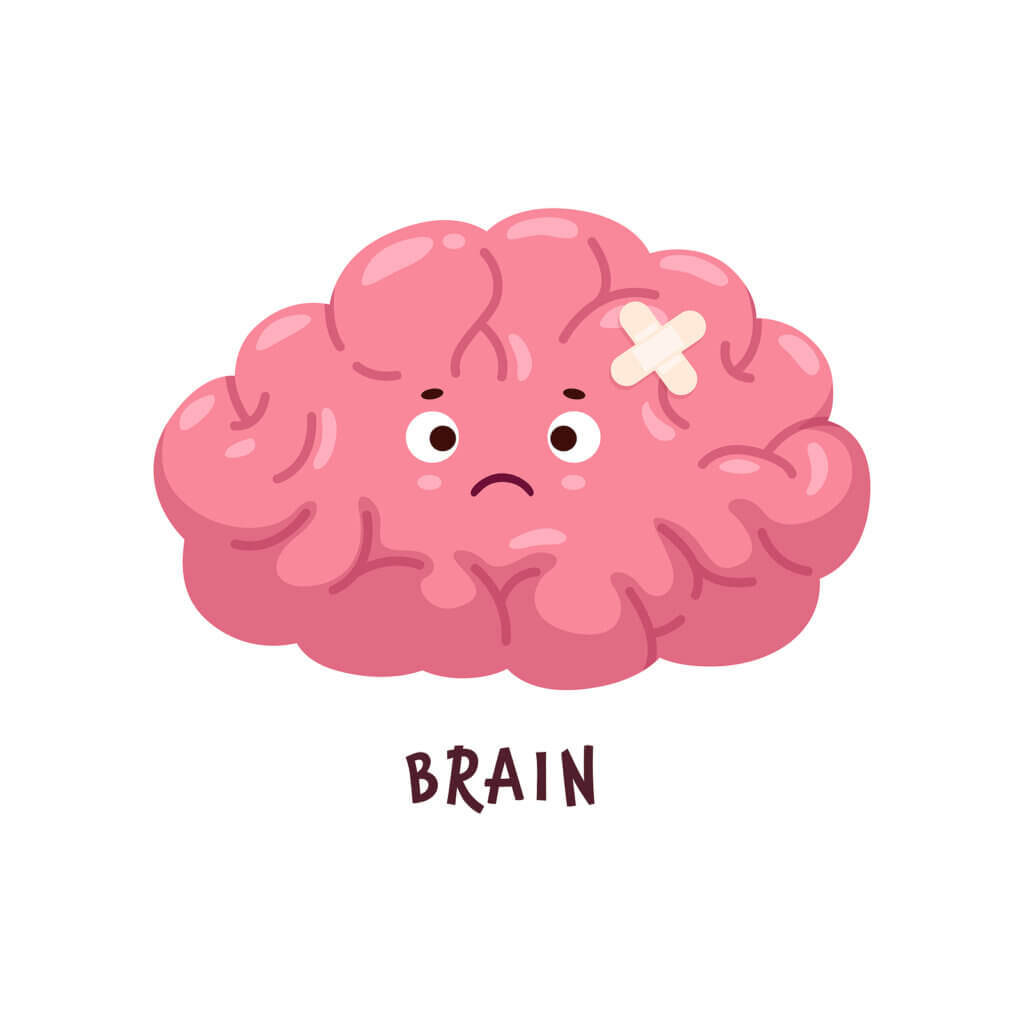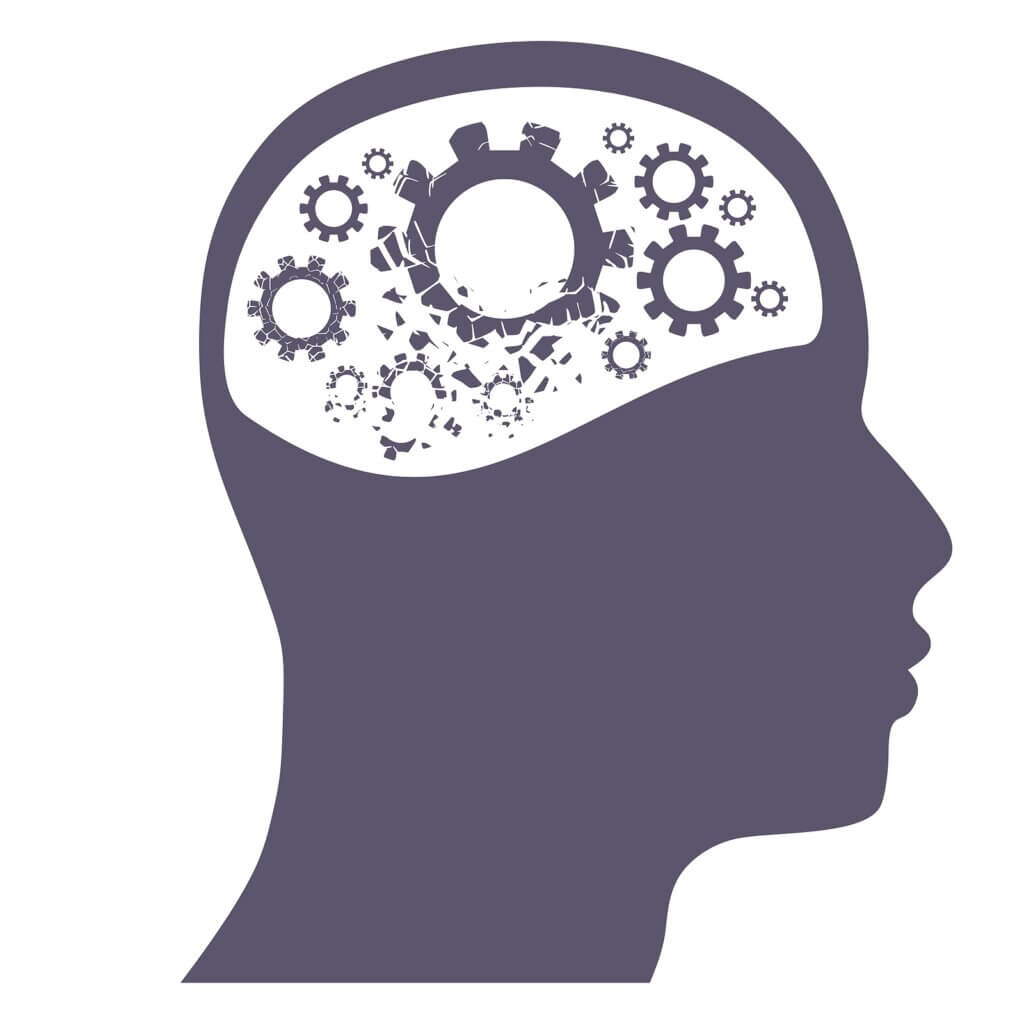Table of Contents
Save Your Brain: How Playing Brain Games Can Improve Your Memory and Brain Functions
Many of us strive to keep our bodies in shape, but how often do we consider the fitness of our brains? Just as we work to build our muscles and enhance our physical endurance, our brains also need regular workouts to stay sharp and efficient. This article will delve deep into the realm of cognitive stimulation and highlight the significant role of brain games in memory improvement and enhanced brain functions.
Understanding Your Brain and Its Functions
To understand the importance of brain games, we must first recognize the complexity and functionalities of our brain. A wonder of nature, the human brain has approximately 100 billion neurons, and it uses about 20% of the body's energy. It is the command center for the nervous system, controlling functions like speech, emotions, learning, and memory.
As we age, it's common to experience a decline in cognitive abilities, including memory and focus. This is where brain games come in. They can offer an effective way to slow down and even reverse the effects of cognitive decline.

The Science Behind Brain Games
The concept of brain games is far more complex than simply being a form of amusement or leisure activity. It incorporates extensive scientific principles and research, particularly within the field of neuroscience. To fully appreciate the value and impact of these cognitive exercises, let's dissect the elements that contribute to the scientific foundation of brain games:
Origins in Neuroscience
The creation and design of brain games are significantly influenced by neuroscience, the scientific study of the nervous system. Neuroscience focuses on understanding how the brain and the rest of the nervous system function at various levels, from the molecular and cellular level to the cognitive and behavioral level. By incorporating principles and findings from this field, brain games are optimized to stimulate and challenge our cognitive abilities.
Leveraging Neuroplasticity
At the heart of the science behind brain games is the principle of neuroplasticity. Neuroplasticity refers to the brain's remarkable ability to rewire itself, forming and adjusting synaptic connections in response to new experiences, learning, or after damage. This quality of the brain allows for ongoing modifications in the neural circuits and adaptations in its pathways and networks.
Stimulation of Synaptic Connections
Playing brain games involves activities that trigger the formation of new, or the strengthening of existing, synaptic connections. These connections, which are the communication links between neurons, are pivotal in every aspect of our brain function. A richer network of connections contributes to improved mental agility, memory, and attention.
Harnessing the Power of Regular Mental Stimulation
Engaging in brain games equates to providing regular mental stimulation to our brains. Consistent exposure to such activities has been demonstrated to harness the potential of neuroplasticity effectively. It serves as a form of cognitive exercise, facilitating enhanced mental performance and resilience.
Impact on Cognitive Functions
One of the main advantages of utilizing neuroplasticity through brain games is the potential improvement in various cognitive functions. This includes, but is not limited to, memory enhancement and attention strengthening. By continually challenging and engaging these cognitive skills, brain games can contribute to overall brain health and longevity.

Types of Brain Games
In the context of our contemporary, digitally-driven society, the repertoire of brain games is extensive and diverse. These mental workouts come in multiple forms – traditional board games, hands-on puzzles, and increasingly, digital applications. Each game is intricately designed with the intent to target and bolster certain cognitive abilities. Let's take an immersive look into the array of brain games available and the specific cognitive competencies they endeavor to refine:
Puzzle Games
Puzzle games serve as a rich source of mental stimulation, majorly targeting logical thinking and spatial reasoning. Here are some popular examples:
- Sudoku: This is a numerical puzzle set on a grid that demands logical reasoning and pattern identification. It strengthens problem-solving capabilities and encourages strategic planning.
- Crosswords: These word-based puzzles aid in expanding vocabulary, polishing language skills, and refining problem-solving abilities. They also provide an effective means to stimulate semantic memory, which involves our ability to recall general knowledge and facts.
- Jigsaw Puzzles: The physical act of piecing together these puzzles enhances visual-spatial reasoning, a crucial skill utilized in everyday tasks like interpreting maps or navigating around spaces.
Memory Games
Memory games are designed with a keen focus on enhancing memory retention and recall. Here are some classic examples:
- Card Matching Games: Also known as Concentration or Memory games, these exercises bolster visual memory and attention to detail. They demand players to remember the location of specific cards, thereby exercising short-term or working memory.
- Simon Says: This popular game enhances auditory memory and sequential recall. It demands the ability to remember and execute a series of instructions, fostering an improvement in short-term memory and attentive listening.
Strategy Games
Strategy games offer a platform to hone planning skills, tactical maneuvers, and foresight. Some of the popular examples are:
- Chess: A game known for its intricate complexity, chess stimulates strategic thinking, boosts attention, and exercises memory. It demands players to think multiple steps ahead and weigh the consequences of their moves.
- Checkers: This traditional board game encourages players to strategize and plan ahead. It provides an engaging way to improve foresight, decision-making, and strategic thinking.
- Strategic Video Games: Digital games that revolve around themes like city-building or warfare scenarios can sharpen strategic thinking, decision-making skills, and mental agility. They offer dynamic and often unpredictable scenarios that demand adaptability and quick thinking.
Trivia Games
Trivia games aim to test and expand knowledge across a multitude of subjects, hence fostering learning and recall abilities. They span a wide array of topics, from geography and history to science and popular culture. This diversity promotes a broad knowledge base, improves memory recall, and stimulates the pleasure centers of the brain, making learning fun and engaging.
How Brain Games Boost Your Memory
Brain games are intelligently crafted cognitive exercises intended to stimulate and challenge your brain, leading to the cultivation of mental agility. As you engage in these mental workouts, you're compelled to recall rules, strategies, patterns, or sequences, which significantly contributes to the enhancement of memory retention. Let's delve into the specifics of how brain games can serve as a powerful tool to boost your memory:
Promoting Mental Agility
At the core of brain games is their ability to prompt mental stimulation. They present various challenges, often in an engaging and entertaining format, that require problem-solving, pattern recognition, or strategic thinking. This active engagement with the game not only improves cognitive function but also aids memory by encouraging the recall of rules, strategies, and game patterns.
Exercising Short-term Memory
Brain games often involve tasks that exercise your short-term memory, also known as working memory. This form of memory stores and manipulates information temporarily, holding it in your mind for a brief period. By requiring you to remember and use this information actively, such as the sequence of a puzzle or the location of specific cards, brain games provide a valuable workout for your working memory.
Strengthening Long-term Memory
In addition to bolstering short-term memory, brain games can also fortify long-term memory, which is responsible for the storage of information over extended periods. Some games encourage the consistent recall of strategic approaches or game rules over time, which aids in transferring this information from short-term to long-term memory.
Continuous Challenge for Sustained Improvement
A key aspect of brain games is their adaptability and escalating levels of difficulty. They continue to present fresh challenges as your skills improve, preventing your brain from falling into comfortable routines. This constant exercise and stimulation of both short-term and long-term memory forms keep your memory abilities sharp and efficient, regardless of age.

Brain Games and Cognitive Abilities
Apart from enhancing memory, brain games deliver an array of benefits across various cognitive domains. Here's a comprehensive look into how these cognitive exercises contribute to the development and strengthening of different mental abilities:
Boosting Attention
Numerous brain games necessitate focused attention to successfully navigate through challenges or achieve specific objectives. These could range from intricate puzzles demanding careful consideration of every move, to fast-paced digital games requiring immediate response to stimuli. By engaging in these activities, you effectively hone your concentration skills, gradually improving your ability to sustain attention on tasks and filter out distractions.
Accelerating Processing Speed
Brain games also contribute significantly to increasing the speed at which you process and react to information. Timed puzzles or games that require quick decision-making under pressure serve as excellent stimulants for your brain's processing speed. Regular engagement with such games can help you become more efficient in interpreting and responding to information swiftly, thereby improving your overall cognitive agility.
Enhancing Problem-Solving Skills
Brain games are often intricately designed to present complex challenges that demand critical thinking. They encourage you to analyze problems, identify patterns, formulate strategies, and implement solutions. Through this process, they sharpen your problem-solving skills and enhance your capacity for logical and analytical thinking, which is beneficial in everyday decision-making.
Cultivating Mental Flexibility
Another critical cognitive ability that brain games foster is mental flexibility. Many games, especially strategy-based ones, often necessitate swift shifts in approach or require the player to adapt to sudden changes in game scenarios. This constant need to adapt and adjust strategies encourages cognitive flexibility, promoting the ability to shift thinking or attention between multiple concepts or perspectives.
Choosing the Right Brain Games for You
The key to reaping the most out of brain games lies in choosing ones that resonate with you both in terms of enjoyment and challenge. This not only aids in achieving effective brain training but also ensures consistency in your cognitive workout regimen. Here are some steps to guide you in picking the right brain games tailored to your preferences and cognitive enhancement goals:
Prioritize Enjoyment
It's fundamental to select brain games that you genuinely enjoy playing. The aspect of fun and engagement acts as a motivator, encouraging you to return to the game frequently. This isn't merely about leisure; it's an essential element that can boost your dedication to regular brain training.
Ensure the Right Level of Challenge
While enjoyment is important, the games should also pose a sufficient level of challenge to stimulate your cognitive abilities effectively. If a game is too easy, it might not provide the mental stimulation required for cognitive improvement. Conversely, if it's excessively difficult, it could lead to frustration and disinterest. Find the balance that keeps you engaged and challenges your brain without causing undue stress.
Experiment with Different Games
Given the broad array of brain games available, it's worth exploring various types to discover what suits you best. Try out different categories – puzzles, strategy games, memory games, and more. This diversity not only ensures that multiple cognitive skills are exercised but also helps identify the games that best align with your interests and cognitive enhancement goals.
Consider Your Cognitive Needs
If you have specific cognitive abilities you'd like to improve, such as memory, attention, or problem-solving, seek out games that target these areas. This way, you can personalize your brain training regimen to address your individual needs and objectives.

Incorporating Brain Games into Your Routine
To gain significant improvements from brain games, consistency in playing these cognitive exercises is critical. This involves creating a routine that aligns well with your lifestyle and steadily increasing the intensity and duration of your brain workouts over time. Moreover, it's crucial to maintain a balanced approach to overall brain health. Let's delve into these aspects in more detail:
Establish a Regular Routine
Similar to physical workouts, the benefits of brain games are best seen when they become a consistent part of your daily or weekly schedule. This could mean allocating a specific time slot for brain training, such as a few minutes each morning to kickstart your day with mental stimulation, or scheduling short sessions during breaks to refresh your mind. Having a dedicated routine helps to ensure regular engagement with these cognitive exercises.
Gradual Progression
When beginning your journey with brain games, it's advisable to start slow. Begin with simpler games or lower difficulty levels to get accustomed to the cognitive challenges they pose. Over time, as your proficiency improves, gradually increase the level of difficulty and the duration of your gaming sessions. This incremental approach ensures a steady enhancement of your cognitive abilities without overwhelming your brain.
Maintain Balance for Overall Brain Health
While brain games play a beneficial role in boosting cognitive functions, it's crucial to remember that they are just one part of a comprehensive brain health regimen. Other critical elements that contribute to cognitive well-being should not be sidelined. This includes regular physical exercise, which boosts blood flow to the brain; social interaction, which improves emotional health and cognitive resilience; and a balanced, nutrient-rich diet that provides the necessary fuel for optimal brain function.
Conclusion
Brain games wield their strength in the unique way they intertwine amusement and mental stimulation, fostering cognitive advancement. They are akin to a mental fitness routine that helps sustain mental dexterity, bolster memory, and keep our minds alert and active. The fundamental element for reaping these benefits is consistent engagement with these cognitive exercises.
The journey to enhanced brain health commences with finding a brain game that aligns with your interests and cognitive enhancement goals. From puzzles that invigorate your problem-solving abilities to memory games that boost your recall, there's a vast spectrum of options available. Explore, experiment, and identify the games that you find both enjoyable and suitably challenging.




Comments
Loading…